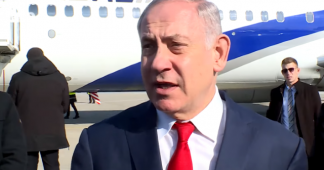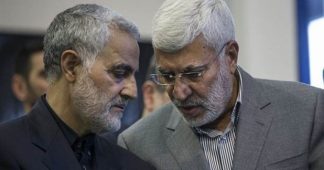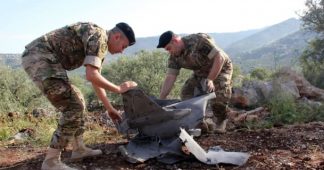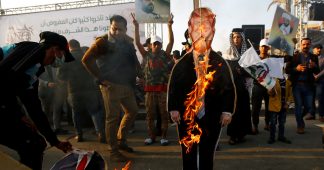How Israel Views Trump’s Strike Against Iran
By Bernard Avishai
January 9, 2020
In the United States, early analyses of the Trump Administration’s assassination of General Qassem Suleimani, the commander of Iran’s Quds Force, tended to come with corresponding analyses of Iran’s array of choices for armed retaliation—attacks on shipping in the Persian Gulf, Saudi oil assets, Iraqi political targets, Israel, various diplomatic missions—suggesting that such a response is inevitable, and wondering, ominously, where it will come. By inference, the rationale for Donald Trump’s bolt-from-the-blue action will be justified, or not, by its consequences and their consequences. As General David Petraeus told Foreign Policy, “It is impossible to overstate the importance of this particular action. . . . Suleimani was the architect and operational commander of the Iranian effort to solidify control of the so-called Shia crescent, stretching from Iran to Iraq through Syria into southern Lebanon.” He added, “Now the question is: How does Iran respond with its own forces and its proxies, and then what does that lead the U.S. to do?”
Read more at https://www.newyorker.com/news/daily-comment/how-israel-views-trumps-strike-against-iran
Why Trump is escalating the US-Israeli war on Iran
By Ali Abunimah
3 January 2020
Israeli Prime Minister Benjamin Netanyahu has praised the US attacks on Iraq that killed senior Iranian general Qasem Soleimani and Abu Mahdi al-Muhandis, the leader of Iraqi militias that were instrumental in the defeat of ISIS – so-called Islamic State.
President Donald Trump “is worthy of full appreciation for acting with determination, strongly and swiftly,” Netanyahu said Friday.
Other senior Israeli politicians, including supposed opposition leaders, lauded the American attack. Among them, Amir Peretz, head of the ostensibly center-left Labor-Gesher party, said Soleimani “deserved to die” and thanked Trump.
Read more at https://electronicintifada.net/content/why-trump-escalating-us-israeli-war-iran/29231
Trumplomacy: Are we seeing the end of a close Israel-US relationship?
By Barbara Plett Usher
9 October 2019
There was an element of the bizarre in the swearing-in ceremony of Israel’s Knesset (parliament) last week.
Only five months had passed since the last time newly elected members took the oath and, given continued political paralysis after another round of inconclusive elections, they may have to do it all over again soon.
Added to that, Israeli Prime Minister Benjamin Netanyahu’s grim, almost apocalyptic speech could not have been less festive. He warned of an imminent war with Iran and unprecedented security challenges, saying it was unlike any remembered since the days of the 1973 Yom Kippur War.
Read more at https://www.bbc.com/news/world-middle-east-49973217
The Iran-Israel War Is Here
More than a decade of civil strife has opened up the region for the escalating state-to-state conflict
By Jonathan Spyer
Israel and Iran are at war. Israeli strikes this week in southern Syria, western Iraq and eastern Lebanon—and possibly even Beirut—confirm it.
This war is a very 21st-century affair. For now it involves only small circles among the Israeli and Iranian populations. Parts of the air force, intelligence services and probably special forces are active on the Israeli side. The Islamic Revolutionary Guard Corps, its expeditionary Quds Force and proxy politico-military organizations in Iraq, Syria and Lebanon are engaged on behalf…
Read more at https://www.wsj.com/articles/the-iran-israel-war-is-here-11566947384
“A nasty, brutal fight”: what a US-Iran war would look like
By Alex Ward
Jan. 3, 2020
A deadly opening attack. Nearly untraceable, ruthless proxies spreading chaos on multiple continents. Costly miscalculations. And thousands — perhaps hundreds of thousands — killed in a conflict that would dwarf the war in Iraq.
Welcome to the US-Iran war, which has the potential to be one of the worst conflicts in history.
The Thursday night killing of Maj. Gen. Qassem Soleimani, who led Iranian covert operations and intelligence and was one of the country’s most senior leaders, brought Washington and Tehran closer to fighting that war. Iran has every incentive to retaliate, experts says, using its proxies to target US commercial interests in the Middle East, American allies, or even American troops and diplomats hunkered down in regional bases and embassies.
Read more at https://www.vox.com/world/2019/7/8/18693297/us-iran-war-trump-nuclear-iraq











